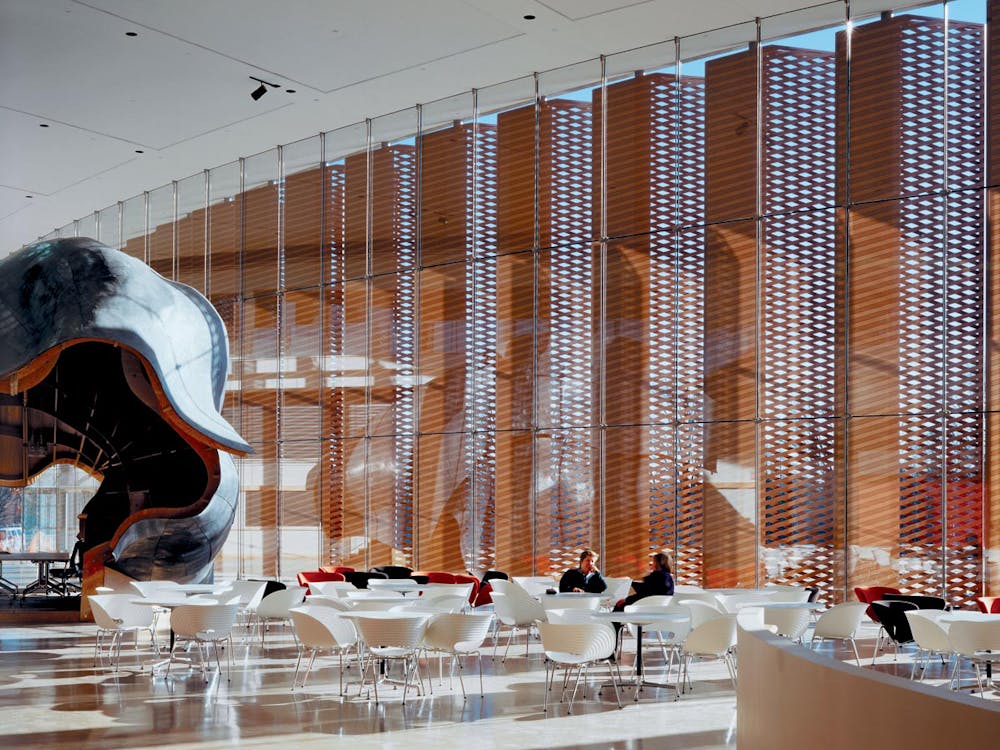Why is it that at the top-ranked university in the nation, there are still so many complaints about the quality of students’ academic experiences?
Students have recently taken to the pages of The Daily Princetonian to document the flaws of Princeton’s academic structure. Abigail Rabieh lamented the lack of support for humanities students in STEM classes, and Allen Liu argued that tough introductory courses discourage Princeton students from sufficiently exploring other disciplines. Liu and Rabieh’s concerns should not be ignored, especially given the University’s insistence that it promotes an academic curriculum that “encourages exploration across disciplines” and provides opportunities “to study what you are passionate about and to discover new fields of interest.”
To encourage genuine academic exploration, the University should adopt a pass/fail fall semester for Princeton first-year students.
The standards for determining a pass/fail for a student during their first semester would be the same as Princeton’s existing pass/D/fail policy, in which a C- and above constitutes a pass and Ds and failing grades are reflected on the transcript. However, students would still receive more specific grades on assignments and exams in their courses as a marker of their progress. Departmental classes would also be pass/fail for this first term because the majority of first-years are still in the process of figuring out their concentrations.
There are many academic benefits to a pass/fail first semester. In their first months at the University, Princeton first-years should not avoid taking certain classes out of a fear of not being able to do well enough in terms of their grades. Freely exploring different disciplines is the cornerstone of a liberal arts education, which Princeton is supposed to provide. Also, a pass/fail first semester would be beneficial in allowing Princetonians to distribute their four pass/fail classes more evenly across their later years. With the implementation of the pass/fail first semester I describe, Princeton first-years will have a much smoother academic transition.
Besides the academic benefits, a pass/fail first semester can aid first-year success in other aspects of University life. Without the pressure of grades, first-years can devote more time toward creating connections with their classmates and integrating themselves within Princeton social life. Seeing as the majority of first-years are also living away from home for the first time, not having as heavy of an academic burden can be crucial to preventing burnout and preserving first-years’ mental health in a time of huge transition.
The University may be concerned that a pass/fail first semester for first-years would not produce the same motivation and drive as letter grades. On the contrary, I believe that the lack of pressure to attain high grades would motivate first-years to learn for the sake of learning. Students benefit not just from their grades at the end of the term, but also from feedback that they receive throughout.
In my first trimester of high school, most of my classes were graded on a pass/fail basis (excluding language and math), which made me feel academically liberated. These first few months of pass/fail classes allowed me to adjust while making a transition from an under-resourced public school to my private high school’s rigor and to test out strategies for success.

How many students have been robbed of opportunities for academic exploration and potentially the chance to be exposed to a new concentration that they could have ended up enjoying? How many students have struggled immensely in their first semesters because of the pressure of attaining high grades on top of the high workload? The University can vow to ensure that this dilemma does not persist for future Princetonians. I want the upcoming Princeton classes to have more academic freedom during their first year than my peers and I did.
If Princeton truly believes that all students should have the opportunity to explore their passions and interests, then this switch to a pass/fail fall semester for first-years should not be hard to make. After all, there is a precedent for this policy amongst our peer schools; Massachusetts Institute of Technology, California Institute of Technology, and Swarthmore College all have pass/fail first terms for their students. The reasoning behind these pass/fail semesters specifically for first-year students also applies to Princeton’s mission. According to Swarthmore’s website, not publishing grades for the first semester “presents the chance to stretch yourself and take risks — to focus on learning, not letter grades. The policy aligns with Swarthmore’s larger spirit of close interactions with professors, and collaboration — not competition — with classmates.”
A pass/fail first semester would allow for deeper relationships with a student’s professors and classmates. The latter is incredibly important given that Princeton students hail from a diverse array of backgrounds with varying degrees of comfort in navigating an elite academic environment.
Princeton will get stressful enough during a new student’s remaining seven semesters. So at least during the first, can the University cut incoming students some slack and give them the opportunity to freely explore any course and discipline that their hearts desire without regrets?

Ndeye Thioubou is a first-year from The Bronx, N.Y. She can be reached at nthioubou@princeton.edu.








